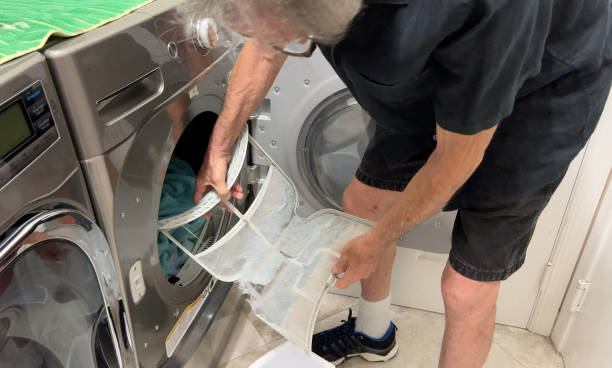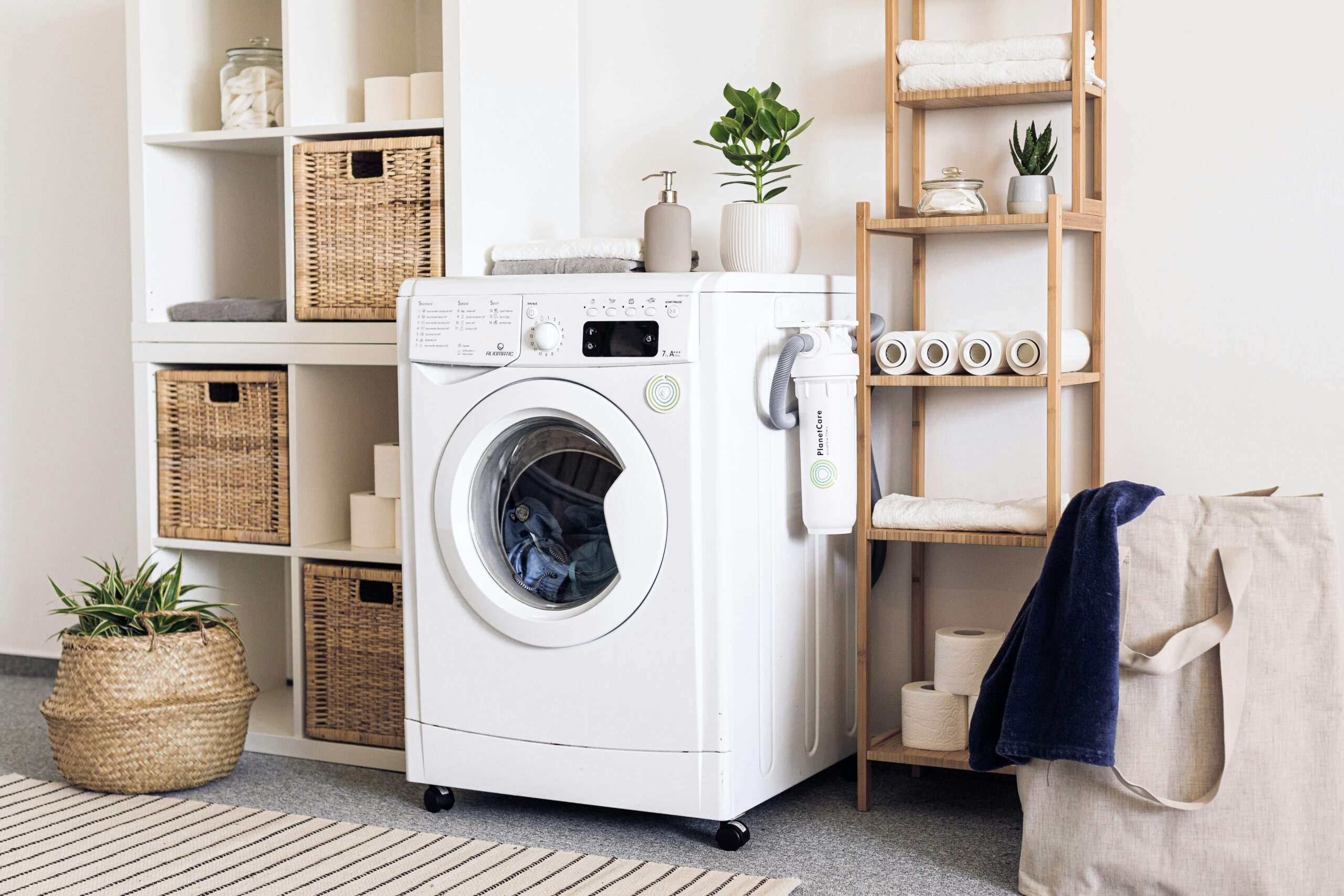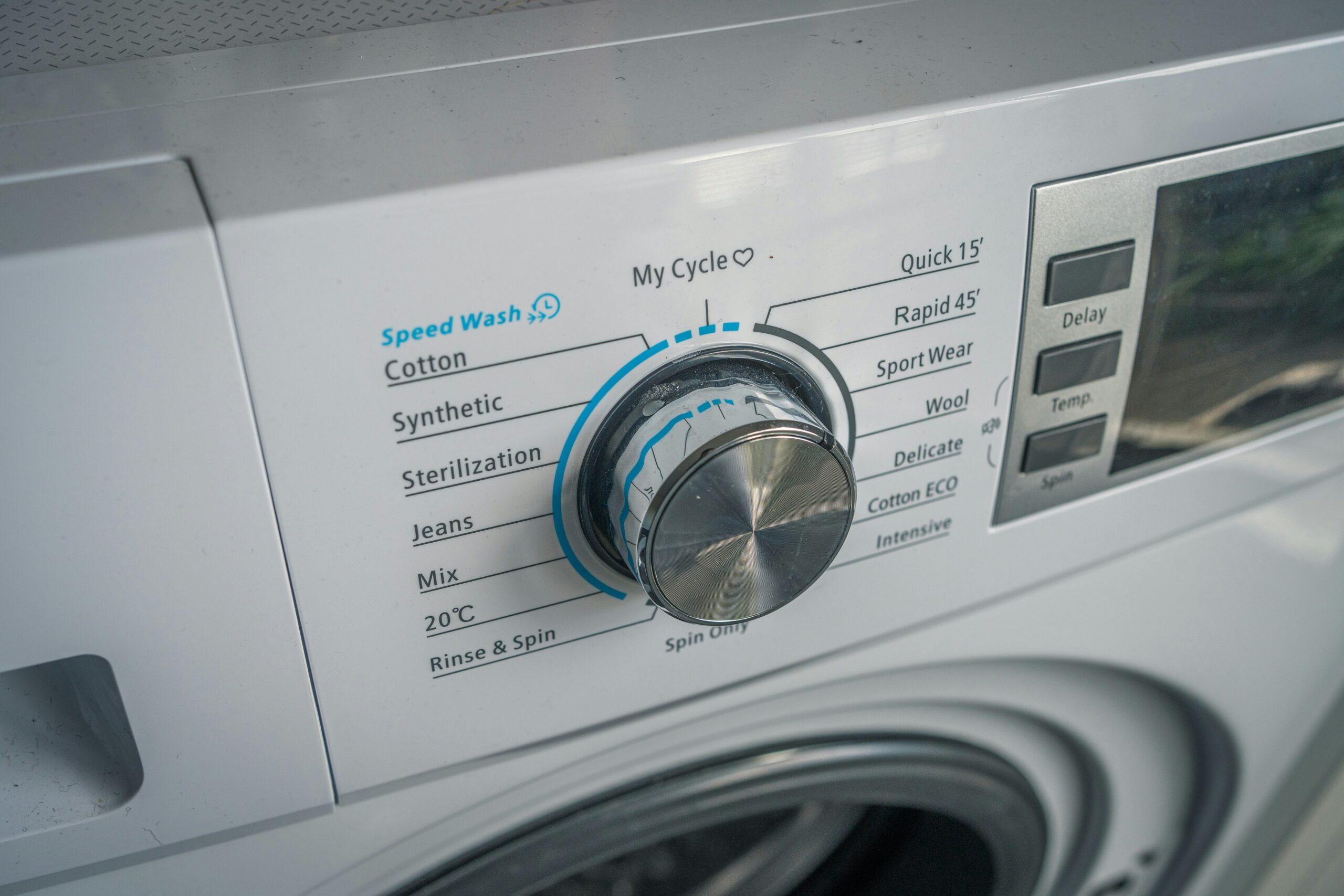Sometimes even our dryers give up and start throwing tantrums by making grinding noises. It can be super annoying, yes. But it also is not just a random noise. It means a lot more than you think, your appliance is trying to tell you something. You know dryers sometimes make weird kinds of noises? And they actually mean a lot of different things, one of them is your dryer making grinding noise. It might be a little bit annoying at first but that doesn’t mean you shouldn’t do anything about it. These can turn into issues that will end up in costly repairs. It is important to prevent them. So, today we are understanding what those grinding noises are and how to take care of them!
Common Causes of Grinding Noises
Worn Out Drum Glides
When your dryer’s drum glides wear down, the metal starts to rub against another metal. This can be the reason for the grinding sound. There are plastic pieces in your drum that help it rotate smoothly. These will over time worsen because of the constant use. The noise usually starts quietly but it becomes louder as the glides wear down more. Most of the dryers have two to four drum glides, and it is necessary to replace them before they wear out completely to prevent damage to other parts.
Failing Drum Rollers
The drum rollers support your dryer’s drum as it spins. You can think of them as the wheels that have wheels below them like rolling cabinet drawers. When they start to fail, everything that is above them starts to suffer a little. In dryers, if the rollers are worn out or have something stuck in them, they will start to make a grinding noise. Modern dryers usually have four to six rollers, and when one starts to fail the others start to take its weight. This can end up in fastening the whole wearing-out process.
Damaged Drive Belt
The belt usually wraps around your dryer’s drum and connects it to the motor. As it starts to get older, it can become frayed or damaged. This can end up in your dryer making a grinding noise because it is struggling to turn the drum. This noise might be very noticeable when the dryer first starts or during speed changes. A worn belt doesn’t just create noise but it also forces your dryer’s motor to work harder, which shortens its life.
Malfunctioning Idler Pulley
It maintains a proper tension on your dryer’s drive belt. So, when this part starts to fail, it creates a grinding noise that might sound like it’s coming from deep inside the machine. The pulley’s bearings usually wear out over time and continuous use. This makes the grinding noise much worse. This issue needs immediate attention because a failed idler pullet can cause the drive belt to slip or even break!
Related: Quick Fixes for Household Trash Compactor Malfunctions Caused by Metal Rod in Trash Compactor
Finding the Source of the Noise
Getting to know the type of grinding noise can help you pinpoint the problem:
Consistent Grinding
If there is a steady grinding noise throughout the cycle, it mostly means that there is a problem with the drum glides or roller issues. This sound usually doesn’t change its intensity and continues as long as the drum is turning. This consistency makes it easier to diagnose but this shouldn’t be ignored just because it is predictable.
Intermittent Grinding
If the noise comes and goes, then it could be the drive belt or the idler pulley. These parts can make different sounds as they rotate through their worn-out spots or as different loads put stress on them. You have to pay attention to when the noise comes – at the startup, during speed changes, or with heavier loads.
DIY Diagnosis Steps
Before picking up your phone to call a professional, there are some ways you can easily look by yourself to identify where the grinding noise is coming from:
- Clear the area around the dryer and listen carefully to identify the area where the noise is coming from. The location can help you narrow down the potential causes like the front sounds usually indicate drum glide issues, while rear noises would mean that there are belt or pulley problems.
- When the dryer is unplugged, open the door and rotate the drum with our hand. Feel if there is any kind of resistance or roughness in the movement. There should be a smooth rotation with minimal effort. Any kind of catching or scarping sensations can help you find the problem area.
- You should also check for obvious signs of wear around the drum’s front edge and look for any kind of debris that might have gotten caught in the mechanism. Sometimes, small objects create grinding noise that can look like serious problems.
When to Call a Professional
Even though some dryer repairs are very DIY-friendly, others sometimes are not so much and need an expert’s attention.
Complex Repairs
Belt replacements and pulley repairs usually need some parts of the dryer to be taken out. These repairs need specific tools and expertise to make sure of proper installations and to avoid future issues. A professional will be able to complete these repairs efficiently and safely.
Multiple Issues
When a lot of parts start to wear down, it is best to call a technician so that they can take care of them systematically. They are also able to identify the problems that can come up in the future and suggest preventive maintenance to avoid having to do the same repairs.
Safety Concerns
If there is a grinding noise with burning smells, excessive heat, or other concerning symptoms then stop using the dryer immediately and contact a technician. These signs could also mean that there are serious problems that can be rough for your safety.
Related: How to Use a Wiring Image to Solve Connection Problems in Appliance
Preventing Future Grinding Noises
Regular maintenance can help you avoid grinding noises and extend the life of your dryer.
Regular Cleaning
Keep your dryer and its surrounding area clean. Dust and debris can actually get into the moving parts, which can speed up the whole process of wear and create grinding noise. You should also clean the lint filter and do a deep cleaning of the dryer’s interiors to prevent a lot of common issues.
Load Management
You should avoid overloading your dryer. A lot of weight can strain the drum support parts and drive mechanism. Make sure to follow the manufacturer’s capacity recommendations and distribute leads evenly.
Prompt Attention to Changes
Make sure you take care of the unusual sounds when they first appear. Doing this usually means simpler, less expensive repairs and prevents damage to the other parts.
Conclusion
When your dryer is making grinding noises, it is a clear signal that your appliance needs attention. These noises can start slowly but eventually can turn into bigger problems. By understanding several causes of dryer making grinding noise, from worn drum glides to failing rollers, you’re more than enough to take care of the problem before it turns into a costly repair or a complete failure. But, if you are not able to do it yourself, simply call Tech Angel’s professional who can not only help you out with the dryer but also make it better.
Remember to notice your dryer making grinding noise – your wallet and your peace of mind will thank you.
Related: When to Check and Calibrate Your Moisture Sensors for Accuracy






